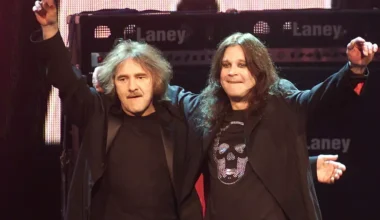By the mid-1970s, Pink Floyd had done the impossible. They weren’t just a successful rock band—they were global icons. Their 1973 release, The Dark Side of the Moon, had catapulted them from psychedelic outsiders to chart-topping legends. But with success came a different kind of pressure—one that nearly tore them apart.
That pressure gave birth to Wish You Were Here—a record that many now call Pink Floyd’s greatest. But for the band themselves, it was a painful turning point.
Guitarist David Gilmour later admitted, “All your childhood dreams had been realised… the girls, the money, the fame… and then you had to ask yourself, ‘What now?’” The success felt hollow, and what was once thrilling had started to feel like a chore.
The band drifted through those recording sessions in a fog of doubt. Engineer Brian Humphries recalled, “There were days when we did absolutely nothing—just word games, darts, drinks. Nobody seemed to know what we were trying to make.”
But slowly, something haunting and beautiful began to emerge.
Then, the moment no one could’ve predicted: Syd Barrett—the band’s original leader, now a ghost of his former self—walked into the studio unannounced. The band was in the middle of recording “Shine On You Crazy Diamond”—a song written for Syd. But no one recognized him at first. His hair was gone, his body bloated. When Gilmour finally realized who it was, Roger Waters broke into tears. That same day happened to be Gilmour’s wedding. Barrett wandered into the reception… and vanished just as mysteriously.
The album became a painful reflection of fame, loss, and the music industry’s soulless machine. “Have a Cigar” mocked the corporate world that treated them like a brand more than a band. One line, “Oh by the way, which one’s Pink?” was based on real executives who didn’t even know the group was a collective—not a man named “Pink.”
Despite all the tension, they pushed forward—and somehow, the music soared.
Even though Gilmour and Waters were clashing behind the scenes, their creative fire burned brighter than ever. Gilmour’s guitar work and Wright’s synth landscapes created something timeless. Waters’ lyrics were sharp, bitter, and brutally honest.
Wish You Were Here became more than just a follow-up to Dark Side—it was a farewell letter to the band they once were.
Both Gilmour and Waters would later call it their favorite Floyd album. But make no mistake: this was the last time Pink Floyd truly operated as a united force. The cracks were already showing. And while the music didn’t suffer, the band’s bond never fully healed.





